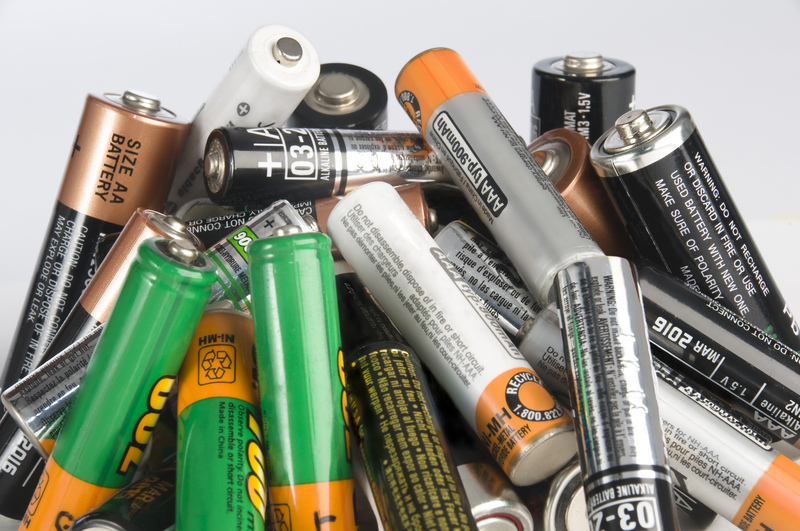
Hard Rubbish Demystified: Identification and Disposal Strategies
In today's fast-paced world, managing waste has become a critical issue. One of the most misunderstood types of waste is hard rubbish. This article aims to demystify hard rubbish, provide insight into its identification, and outline effective disposal strategies that are environmentally friendly and legally compliant.
What is Hard Rubbish?
Hard rubbish, sometimes referred to as bulk waste or hard waste, encompasses large items that are not typically accepted in regular waste collection. These can range from furniture to household appliances, and often require special disposal methods.
Identification of Hard Rubbish
Identifying hard rubbish is crucial for proper disposal. Here are some common items often classified as hard rubbish:
- Furniture: Sofas, mattresses, tables, chairs, bed frames.
- White Goods: Refrigerators, washing machines, microwaves.
- Electronics: TVs, computers, monitors.
- General Household Items: Bicycles, garden tools, old toys.
- Renovation Waste: Bathtubs, sinks, doors.
Tip: Always check with your local council to ascertain what qualifies as hard rubbish in your area, as regulations and classifications may vary.
Why Proper Disposal of Hard Rubbish Matters
The significance of disposing of hard rubbish correctly cannot be overstated. Here are some reasons why proper disposal is crucial:
- Environmental Impact: Improper disposal can lead to pollution and harm ecosystems.
- Compliance with Regulations: Municipalities have specific rules for waste disposal, and adhering to these is mandatory.
- Resource Recovery: Many items categorized as hard rubbish can be recycled or repurposed.
- Health and Safety: Disposing of hard rubbish correctly prevents hazards and accidents.
Disposal Strategies for Hard Rubbish
Given its unique characteristics, hard rubbish requires specialized disposal strategies. Below are several effective methods:
1. Local Council Collection
Many councils offer scheduled hard waste collections. Residents can book a collection time during designated hard rubbish weeks. Here's how you can optimize your participation:
- Sort items into categories, such as furniture, electronics, etc.
- Contact your local council to find out their specific instructions.
- Place items on the curbside as instructed, ensuring they do not obstruct pedestrians.
2. Drop-Off Centers and Depots
Another viable option is to take your hard rubbish directly to a waste management center. These facilities often have separate stations for various types of waste.
- Check if the center accepts your items.
- Transport items safely to avoid any damage or injury.
3. Recycling and Reuse
Before considering your items as waste, evaluate their potential for reuse or recycling:
- Donate usable items to charities or shelters.
- Take electronics to specialized e-waste recycling plants.
- Contact local services or companies that offer refurbishment.
4. Professional Disposal Services
Sometimes, hiring professionals is the best course of action. These companies often offer comprehensive services that include pickup, transportation, and disposal.
- Ensure the service is licensed and adheres to environmental regulations.
- Compare quotes from different companies to find the best deal.
Challenges and Considerations in Hard Rubbish Disposal
Despite the available strategies, several challenges can affect the disposal process:
- Volume Limits: Some councils impose limits on the amount of hard rubbish you can dispose of.
- Prohibited Items: Certain items, like hazardous waste, are restricted in hard rubbish disposal.
- Scheduling Conflicts: Limited collection dates might not align with personal availability.
To effectively manage these challenges, planning ahead and staying informed are key. Prepare your hard rubbish based on informed decisions to ensure compliance and efficiency.
Conclusion
In conclusion, managing hard waste disposal requires a proactive approach. By identifying, sorting, and employing the right disposal strategies, you help preserve the environment, comply with legal standards, and contribute to sustainable living practices. As we move towards a greener planet, every informed action counts.
Hard rubbish doesn't need to be a hard problem. Commit to responsible disposal today and make a difference in your community's environmental health. For further information, stay connected with local regulations and available resources.
By understanding what constitutes hard rubbish and how to dispose of it properly, you are better equipped to contribute positively to waste management efforts.
